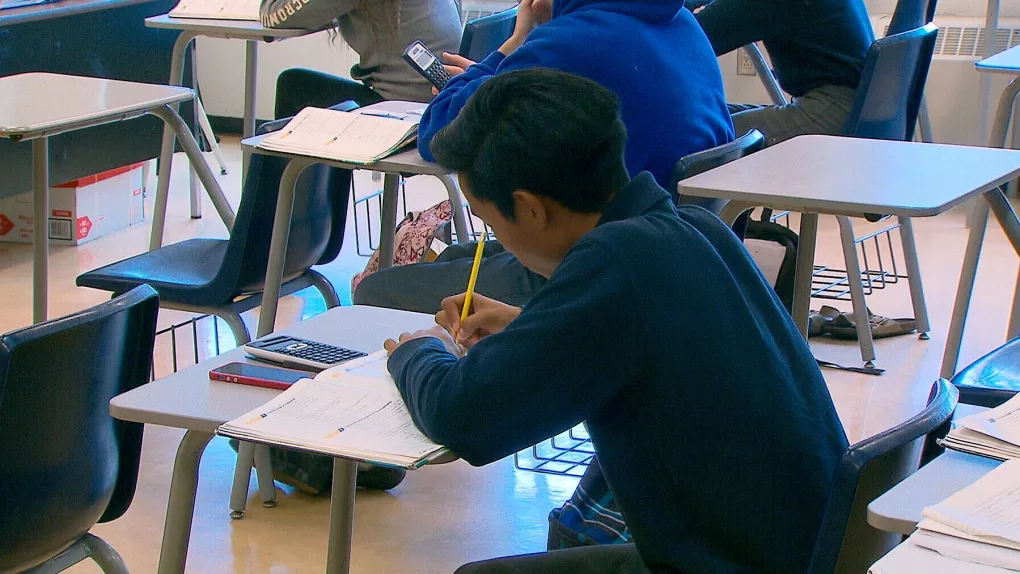Choosing the Perfect International School in Toronto — Are you considering moving to Toronto and looking for the perfect international school for your child? Look no further! In this comprehensive guide, we will walk you through everything you need to know about choosing the perfect international school in Toronto. With a wide range of options available, it can be overwhelming to make the right decision.
However, with our expert advice and insider knowledge, we will help simplify the process for you. From understanding the different types of international schools to considering the curriculum, extracurricular activities, and location, we will provide you with all the information you need to make an informed choice.
We understand that selecting the right school is crucial for your child’s education and overall development. With our guidance, you can rest assured that you will find the perfect international school in Toronto that aligns with your child’s needs, interests, and aspirations. So, let’s dive in and find the ideal educational institution that will set your child up for success in their international journey.
Table of Contents
Benefits of attending an international school
Attending an international school in Toronto offers a multitude of benefits for your child’s education and personal growth. Firstly, international schools provide a diverse and multicultural environment where students from various backgrounds come together, fostering a global mindset and intercultural understanding. This exposure to different perspectives and cultures prepares students to navigate an increasingly interconnected world.
Secondly, international schools often offer a rigorous and internationally recognized curriculum, such as the International Baccalaureate (IB) or Cambridge International Curriculum. These curricula are designed to provide a well-rounded education that focuses on critical thinking, problem-solving, and holistic development. By following such curricula, students gain a broader knowledge base and develop essential skills that are highly valued by universities and employers worldwide.
Moreover, international schools in Toronto often have excellent facilities, including state-of-the-art classrooms, libraries, science labs, sports facilities, and arts studios. These resources enhance the learning experience and provide students with opportunities to explore their interests and talents in various fields. Additionally, international schools often have smaller class sizes, allowing for more individualized attention and a supportive learning environment.
Read Also: Benefit of Studying at an International School in Ontario
Factors to consider when choosing an international school in Toronto
When choosing an international school in Toronto, several factors should be taken into consideration to ensure the best fit for your child. One crucial factor is the location of the school. Consider the proximity to your home or workplace, transportation options, and the surrounding neighborhood. A convenient location will make it easier for your child to commute and participate in extracurricular activities.
Another important factor is the school’s mission and values. Research the school’s philosophy and educational approach to determine if it aligns with your own beliefs and goals for your child’s education. Some schools may focus on a specific educational philosophy, such as Montessori or Waldorf, while others may have a more traditional or progressive approach. Understanding the school’s philosophy will help you gauge if it is the right fit for your child’s learning style and preferences.
Additionally, consider the school’s size and class composition. Some students thrive in smaller, tight-knit communities, while others prefer larger schools with a more diverse student body. Reflect on your child’s personality and social needs to determine which type of school environment would best support their growth and development.
Read Also: The Benefits of Private Schools in Ontario
Curriculum options in international schools
International schools in Toronto offer a wide range of curriculum options to cater to different educational needs and aspirations. The most common curricula found in international schools include the International Baccalaureate (IB), Cambridge International Curriculum (CIC), and national curricula from various countries, such as the British, American, or French curriculum.
The International Baccalaureate (IB) curriculum is renowned for its inquiry-based approach and focus on developing critical thinking, research skills, and intercultural understanding. It is divided into four programs: the Primary Years Programme (PYP), the Middle Years Programme (MYP), the Diploma Programme (DP), and the Career-related Programme (CP). The IB curriculum is highly regarded by universities worldwide and provides a seamless transition for students moving between schools in different countries.
The Cambridge International Curriculum (CIC) is another popular choice, offering a wide range of subjects and qualifications, including the Cambridge Primary, Cambridge Lower Secondary, Cambridge IGCSE, and Cambridge International A-Level. The CIC curriculum emphasizes depth of knowledge and independent thinking, preparing students for university and beyond.
National curricula, such as the British, American, or French curriculum, are also available in international schools in Toronto. These curricula provide students with a solid foundation in the respective country’s education system and may be preferred by families planning to return to their home country in the future.
Language options in international schools
International schools in Toronto recognize the importance of language proficiency and offer a variety of language options to cater to the diverse student population. English is the primary language of instruction in most international schools, ensuring that students develop fluency in this global language. However, many schools also offer additional language options, such as French, Spanish, Mandarin, or other languages, depending on the school’s language program and student demand.
Bilingual or multilingual education is highly valued in international schools, as it equips students with the ability to communicate and interact effectively in a global context. Research the language programs offered by different schools to determine if they align with your child’s language learning goals and interests.
Extracurricular activities and facilities in international schools
Extracurricular activities play a vital role in a child’s holistic development, and international schools in Toronto offer a wide range of options to cater to diverse interests and talents. From sports teams and clubs to performing arts groups and community service initiatives, these activities provide students with opportunities to explore their passions, develop leadership skills, and build lifelong friendships.
When considering an international school, inquire about the extracurricular activities available and the level of student participation. Some schools may have a strong focus on sports or arts, while others may offer a broader range of options. Additionally, consider the school’s facilities, such as sports fields, gymnasiums, theaters, music studios, and art rooms. These resources contribute to a well-rounded education and provide students with the necessary tools and spaces to pursue their interests and talents.
Student support services in international schools
International schools in Toronto prioritize the well-being and academic success of their students, offering a range of support services to ensure their holistic development. These services may include counseling, learning support, English as an Additional Language (EAL) support, and special education services.
Counseling services provide students with emotional and academic support, helping them navigate the challenges of adolescence and make informed decisions about their future. Learning support programs assist students with specific learning needs, ensuring they receive the necessary accommodations and resources to succeed academically. EAL support is offered to non-native English speakers, helping them develop their English language skills and integrate into the school community. Special education services cater to students with disabilities or learning differences, providing individualized support and accommodations.
When researching international schools, inquire about the availability and quality of these support services. A school that prioritizes student well-being and offers comprehensive support programs will contribute to your child’s overall success and happiness in their educational journey.
School reputation and accreditation
The reputation and accreditation of an international school are important factors to consider when making your decision. Research the school’s track record, academic achievements, and university placement history. A school with a strong reputation indicates a commitment to excellence in education and will provide your child with access to a network of high-achieving peers and opportunities.
Accreditation is another crucial aspect to consider, as it ensures that the school meets certain standards of quality and provides a recognized and transferable education. Look for schools that are accredited by reputable international accrediting bodies, such as the Council of International Schools (CIS) or the Western Association of Schools and Colleges (WASC). Accreditation ensures that the school has undergone a rigorous evaluation process and meets international standards of education.
Cost considerations when choosing an international school
When choosing an international school in Toronto, it is essential to consider the cost implications. International schools often have higher tuition fees compared to local schools due to the additional resources and international curricula they offer. Evaluate your budget and determine how much you can comfortably afford without compromising your family’s financial stability.
In addition to tuition fees, factor in other costs, such as transportation, uniforms, textbooks, extracurricular activities, and school trips. Some schools may offer scholarships or financial aid programs, so inquire about these options if you require financial assistance. Remember to weigh the cost against the value and benefits that the school provides, ensuring that you make an informed decision that aligns with your budget and your child’s educational needs.
Steps to take when selecting the perfect international school in Toronto
Now that you have a comprehensive understanding of the factors to consider when choosing an international school in Toronto, let’s outline the steps you should take to ensure a successful selection process:
1. Research: Gather information about different international schools in Toronto, including their curriculum, location, facilities, extracurricular activities, and support services. Utilize online resources, school websites, and parent reviews to gather insights.
2. Visit Schools: Schedule visits to the shortlisted schools to get a firsthand experience of the campus, meet the staff, and observe the learning environment. Take note of the school’s atmosphere, interactions between students and teachers, and the overall vibe.
3. Ask Questions: Prepare a list of questions to ask during the school visits. Inquire about the curriculum, language programs, extracurricular activities, support services, and any other specific concerns or interests you may have.
4. Talk to Parents and Students: Reach out to current parents and students of the shortlisted schools to gather their firsthand experiences and insights. Ask about their satisfaction with the school, the quality of education, and any challenges they have faced.
5. Consider Priorities: Reflect on your child’s educational needs, interests, and aspirations. Consider what factors are most important to you and your child, such as curriculum, language options, extracurricular activities, or support services. Prioritize these factors when making your final decision.
6. Make a Decision: Evaluate the information gathered and weigh the pros and cons of each school. Consider your budget, commute, and the overall fit for your child. Select the international school in Toronto that best aligns with your priorities and aspirations.
7. Complete the Application Process: Once you have made your decision, follow the school’s application process, which may include submitting an application form, academic records, recommendation letters, and other required documents. Be sure to adhere to the application deadlines.
8. Prepare for Transition: Once your child is accepted into the chosen international school, start preparing for their transition. Familiarize yourself with the school’s policies, academic calendar, and any required preparations, such as uniform purchases or language assessments.
By following these steps, you will be well-equipped to select the perfect international school in Toronto that meets your child’s educational and personal needs.
Conclusion
Choosing the perfect international school in Toronto is a significant decision that will shape your child’s educational journey and overall development. By considering factors such as curriculum options, language programs, extracurricular activities, support services, and school reputation, you can make an informed choice that aligns with your child’s needs and aspirations.
Remember to evaluate cost considerations and follow a systematic approach when selecting the ideal international school. With our comprehensive guide and expert advice, you are now equipped to navigate the process with confidence. Toronto offers a diverse and vibrant educational landscape, and by choosing the right international school, you can provide your child with a solid foundation for success in their international journey. Good luck in finding the perfect educational institution that will nurture and inspire your child to reach their full potential.



